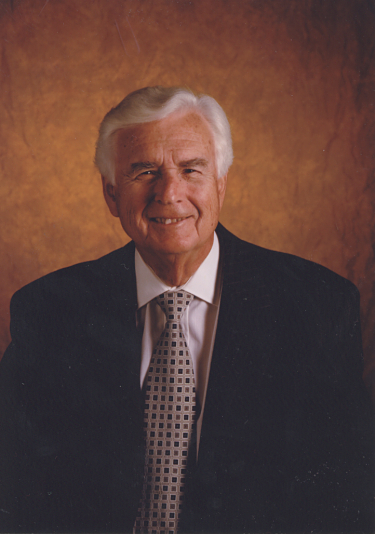William G. Salatich*
Class of 1975
- President Gillette North America

If you like what you do, you'll do the best job possible.
William Salatich was born in 1922 and was raised in a tough, ethnic neighborhood on the north side of Chicago. His parents immigrated to the United States from Serbia to escape political persecution and to pursue the American dream. But life in America was difficult for them, and they struggled to survive the Great Depression. When Salatich was five, his father died. Despite the family's meager finances, Salatich said he never felt deprived. "Where we lived, everybody was struggling, but no one considered themselves to be poor," he said. "I never really heard the word '˜poor.'"
By the age of nine, Salatich was delivering newspapers. In high school, he worked in a drug store. He graduated at 16 and went to work in a factory. He married at 19 and spent the next three years in the U.S. Army. After his discharge in 1945, Salatich went from job to job, managing a bowling alley, working in a restaurant, and driving a cab in Chicago. Finally, with help from the Veterans Administration, he got an interview for a sales position with Gillette Safety Razor Company. Feeling he had finally found his niche, Salatich sold razor blades in south Chicago. "I didn't have a car, so I had to take a streetcar for about 90 minutes just to reach my sales territory," he said.
To learn more about marketing, Salatich enrolled in night classes at Northwestern University. He was soon promoted to district manager, and then worked his way up to vice president of sales, president of the safety razor division, president of the Toni division, and then executive vice president of the Gillette Company. He ultimately became president of Gillette North America and served as vice chairman of the company's board of directors. Salatich retired from Gillette in 1979 and went on to run his own consulting company.
Always proud of his Horatio Alger Award, Salatich was especially interested in the Association's scholarship program for deserving young people. "I miss what I could have been exposed to if I had gone to college," he said. "I think it would have made me an even better father, mate, and manager."
Salatich urged young people to pursue a field they enjoy. "If you like what you do, you'll do the best job possible. If you have to work at something you don't like, you'll be miserable. If necessary, keep changing jobs until you are working at something you really enjoy."
